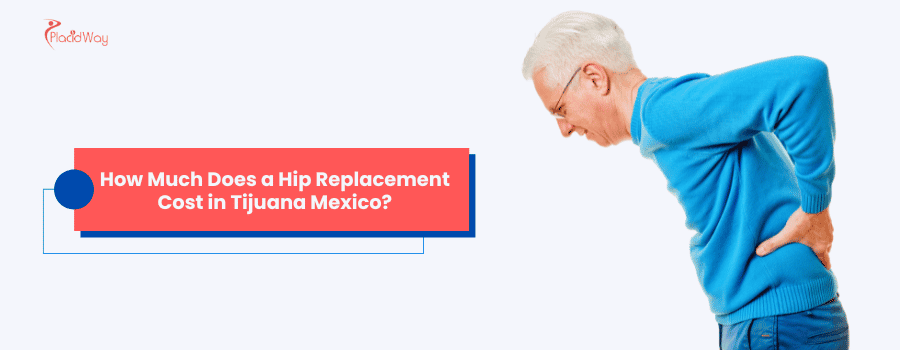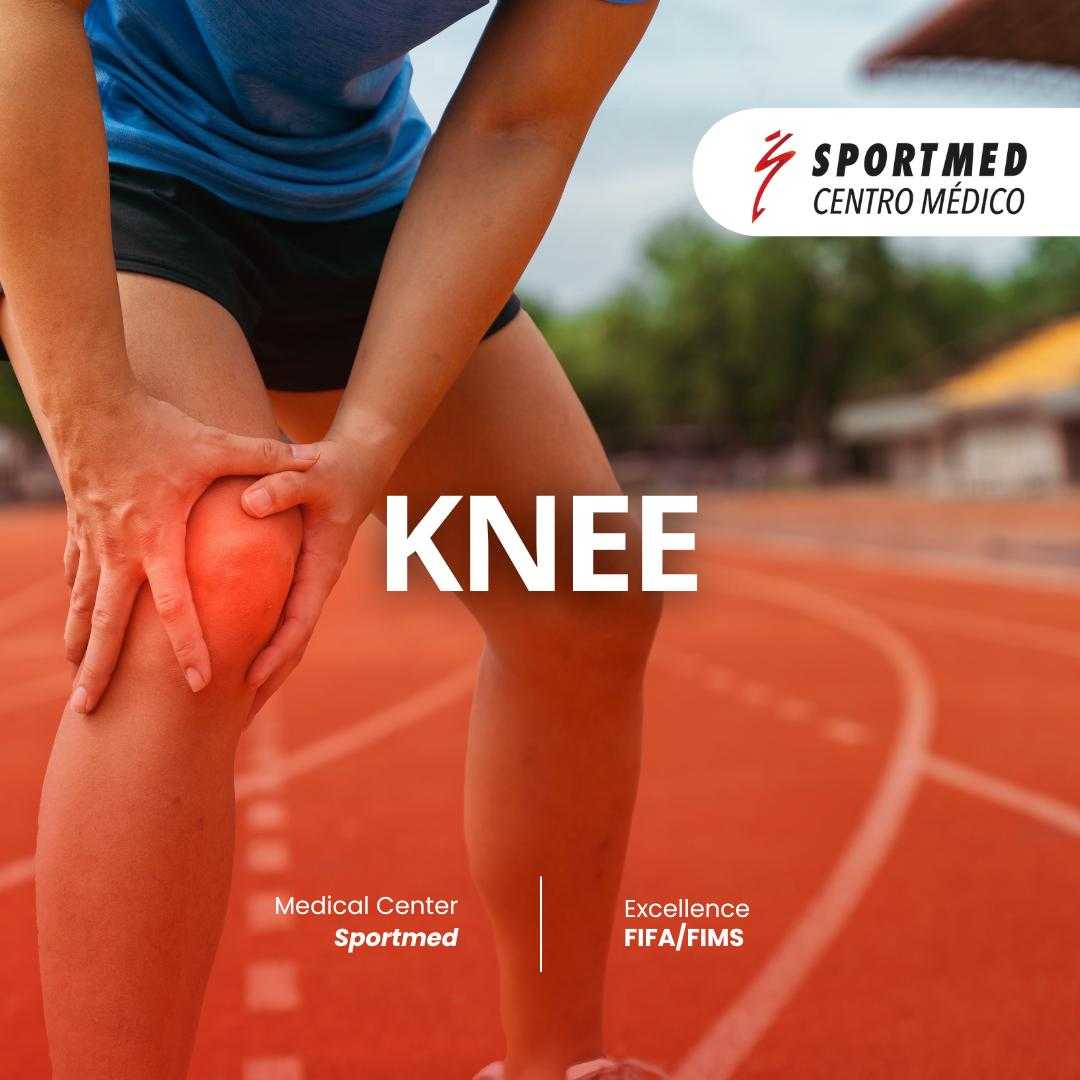A Guide to Hip Replacement Surgery Cost in Tijuana, Mexico
"Hip replacement surgery in Tijuana, Mexico, typically ranges from $11,500 to $16,715, offering significant cost savings compared to prices in the United States and Canada."

Hip replacement surgery is a common and highly effective procedure for alleviating chronic hip pain and improving mobility, especially for those suffering from conditions like osteoarthritis, rheumatoid arthritis, or hip fractures. Many individuals are now considering medical tourism for this significant procedure, and Tijuana, Mexico, has emerged as a popular destination. This is largely due to the substantial cost savings available, often without compromising on the quality of care. This detailed guide will explore the various aspects of hip replacement costs in Tijuana, factors influencing these prices, and what to expect when choosing this option for your treatment. The aim is to provide comprehensive answers to frequently asked questions, helping you make an informed decision about your hip replacement journey.
What is the average cost of hip replacement surgery in Tijuana, Mexico?
"The average cost of hip replacement surgery in Tijuana, Mexico, falls between $11,500 and $16,715."
While prices can vary depending on the clinic, surgeon's experience, and the specific type of implant used, this range represents a significant reduction compared to costs in the United States, where the same procedure can easily exceed $30,000 to $50,000. This affordability makes Tijuana an attractive option for patients seeking high-quality care at a more accessible price point. Many packages offered by clinics in Tijuana are comprehensive, often including pre-operative consultations, the surgery itself, hospital stay, anesthesia, and initial post-operative care.
How does the cost of hip replacement in Tijuana compare to the US and Canada?
"Hip replacement in Tijuana, Mexico, is significantly more affordable than in the United States and Canada, often saving patients 50% to 70%."
In the United States, a hip replacement can range from $30,000 to over $70,000, and sometimes even up to $200,000 in certain scenarios, depending on the hospital, surgeon, and whether complications arise. In Canada, while the healthcare system covers most costs for citizens, wait times can be lengthy, leading some to seek faster treatment abroad. Tijuana offers a compelling alternative, with costs averaging around $13,000. This dramatic price difference is a primary driver for medical tourism to the region, allowing patients to receive essential care without the substantial financial burden.
What factors influence the cost of hip replacement in Tijuana?
"The cost of hip replacement in Tijuana is influenced by factors such as the type of implant, the surgeon's fees, hospital charges, anesthesia costs, and pre/post-operative care inclusions."
Each of these components plays a role in the final price. For instance, advanced or robotic-assisted hip replacement procedures may incur higher costs due to specialized equipment and expertise. The reputation and experience of the orthopedic surgeon also affect their fees. Hospital facilities, including the length of stay and the level of amenities, contribute to the overall expense. Finally, the scope of the package—whether it includes extensive pre-operative tests, rehabilitation, or extended follow-up care—will impact the total price.
Are all-inclusive packages available for hip replacement in Tijuana?
"Yes, many clinics in Tijuana offer all-inclusive packages for hip replacement surgery, which typically cover the procedure, hospital stay, surgeon fees, anesthesia, and initial post-operative care."
These packages are designed to provide transparency and convenience for international patients, consolidating various costs into a single price. While the specifics can vary, a comprehensive package usually includes pre-operative medical evaluations (like blood tests and X-rays), the cost of the prosthetic implant, surgical fees, the operating room charges, medications administered during hospitalization, and nursing care. Some may also include airport transfers and a few nights of hotel accommodation for recovery, making the process smoother for those traveling from abroad.
What types of hip implants are used in Tijuana, and how do they affect the cost?
"Clinics in Tijuana use a variety of hip implants, including common cemented, uncemented, and hybrid options, as well as advanced ceramic or metal-on-metal prostheses, with the choice of implant impacting the overall cost."
The type of hip implant chosen for your surgery can significantly influence the total price. Standard implants, often made of metal and plastic components, are generally more affordable. More advanced prostheses, such as those made with ceramic components for increased durability or those designed for minimally invasive techniques, can be more expensive. Surgeons in Tijuana typically use implants approved by international standards, including those from the FDA, ensuring quality and safety. During your consultation, your surgeon will discuss the most suitable implant based on your specific needs, age, activity level, and bone quality, outlining how this choice affects the total hip replacement cost.
How long is the hospital stay for hip replacement in Tijuana?
"The typical hospital stay for hip replacement surgery in Tijuana ranges from 2 to 4 days, though it can be longer depending on the patient's recovery progress and any specific medical needs."
This duration is similar to hospital stays in many Western countries. During this time, medical staff monitor your vital signs, manage pain, and begin initial physical therapy to help you regain mobility. The goal is to ensure you are stable and comfortable before discharge. For some patients, especially older individuals or those with pre-existing conditions, a slightly longer stay might be recommended to ensure optimal recovery and minimize complications.
What is the typical recovery time after hip replacement surgery in Tijuana?
"The typical recovery time after hip replacement surgery in Tijuana involves an initial healing period of 6 to 12 weeks, with full recovery and return to normal activities often taking 6 months to a year."
Immediately after surgery, you'll begin gentle exercises. Within a few weeks, most patients can move around with assistance (like crutches or a walker). Physical therapy is a crucial part of the recovery process, helping to strengthen the muscles around the new joint and improve range of motion. While many patients experience significant pain relief and improved mobility within a few months, complete healing and restoration of full function can take up to a year, depending on individual factors, adherence to physical therapy, and the type of hip replacement performed.
Are the surgeons in Tijuana qualified for hip replacement procedures?
"Yes, many orthopedic surgeons in Tijuana specializing in hip replacement are highly qualified, often board-certified and with extensive experience, some even trained in the US or Europe."
Tijuana has become a hub for medical tourism due to its proximity to the US border and the presence of modern medical facilities staffed by skilled professionals. It is common for orthopedic surgeons in Tijuana to have international certifications and to be members of prestigious medical associations. Patients are encouraged to research their chosen surgeon's credentials, experience, and patient reviews to ensure they are comfortable with their choice. Many clinics provide detailed profiles of their surgeons, including their education, specialties, and years of practice.
What pre-operative tests are required for hip replacement in Tijuana?
"Before hip replacement surgery in Tijuana, patients typically undergo a series of pre-operative tests, including blood tests, X-rays of the hip, an electrocardiogram (ECG), and sometimes a urine analysis."
These tests are essential to assess your overall health, identify any potential risks, and ensure you are a suitable candidate for the surgery. The results help the medical team create a personalized treatment plan and determine the safest approach for your hip replacement. You may also have a consultation with the orthopedic surgeon and anesthesiologist to discuss your medical history and address any concerns.
What post-operative care and rehabilitation are included in Tijuana hip replacement packages?
"Many Tijuana hip replacement packages include initial post-operative care and rehabilitation, such as medication for pain management, wound care, and early physical therapy sessions during the hospital stay."
The level of post-operative care and rehabilitation included in a package can vary. While basic pain management and initial mobility exercises are standard, some more comprehensive packages might offer additional physical therapy sessions or guidance for at-home exercises after discharge. It's important to clarify what follow-up care is provided, as continued physical therapy is crucial for a successful long-term recovery from hip replacement surgery. Patients should plan for their rehabilitation needs, whether that involves continuing therapy in Tijuana or arranging for it upon their return home.
What are the risks associated with hip replacement surgery in Tijuana?
"Like any major surgery, hip replacement in Tijuana carries risks, including infection, blood clots, nerve damage, hip dislocation, leg length discrepancy, and implant loosening, though these are rare and mitigated by experienced medical teams."
While the general risks are similar to those in any country, choosing a reputable clinic with experienced surgeons in Tijuana is key to minimizing them. Clinics adhering to international standards of care, using modern equipment, and maintaining strict hygiene protocols help ensure patient safety. It's vital for patients to discuss all potential risks with their surgeon during the consultation and follow all pre- and post-operative instructions carefully.
How can I verify the quality and safety of a clinic in Tijuana for hip replacement?
"To verify the quality and safety of a clinic in Tijuana for hip replacement, look for international accreditations (like JCI), inquire about the surgeon's credentials and experience, read patient reviews, and examine the facility's adherence to hygiene standards."
Research is crucial when considering medical care abroad. Check if the clinic holds any international certifications, which indicate adherence to global healthcare standards. Investigate the orthopedic surgeon's qualifications, including their education, board certifications, and the number of hip replacement surgeries they have performed. Online patient reviews and testimonials can offer insights into other patients' experiences. Furthermore, reputable clinics will be transparent about their facilities, equipment, and safety protocols, allowing you to make an informed decision.
Is language a barrier for hip replacement patients in Tijuana?
"While Spanish is the primary language, many medical professionals and staff in Tijuana clinics catering to international hip replacement patients are fluent in English, minimizing language barriers."
Given Tijuana's proximity to the US border and its popularity as a medical tourism destination, most reputable clinics employ bilingual staff, including doctors, nurses, and administrative personnel. This ensures clear communication regarding your medical history, treatment plan, and post-operative instructions. Some clinics even offer translation services if needed. This focus on accessible communication helps to alleviate concerns for English-speaking patients seeking hip replacement in Tijuana.
What are the advantages of getting a hip replacement in Tijuana?
"The main advantages of getting a hip replacement in Tijuana include significantly lower costs, reduced waiting times, access to experienced surgeons and modern facilities, and the convenience of its location near the US border."
For many, the cost savings are the most compelling factor, making a life-changing surgery accessible. Shorter waiting lists compared to some public healthcare systems mean patients can receive treatment sooner. Many clinics in Tijuana have invested in modern technology and maintain high standards of care to attract international patients. Its geographical proximity to the United States also makes travel relatively easy and less expensive for American patients.
What should I consider before traveling to Tijuana for hip replacement surgery?
"Before traveling to Tijuana for hip replacement surgery, consider your travel logistics (passport, transportation), post-operative accommodation, follow-up care arrangements, and ensuring clear communication with your chosen clinic."
It's important to have a valid passport and understand any visa requirements. Plan your travel to and from Tijuana, considering transportation options after your surgery. Arrange for suitable post-operative accommodation, especially if your recovery package does not include an extended stay. Discuss with your surgeon and physical therapist how you will continue your rehabilitation once you return home. Finally, ensure all financial arrangements are clear and confirmed with the clinic before your travel.
Considering a hip replacement or other specialized healthcare services? Explore the wide range of solutions and expert care available through PlacidWay. We connect you with world-class medical facilities and experienced professionals for a seamless and affordable healthcare journey.


.png)

.png)












Share this listing